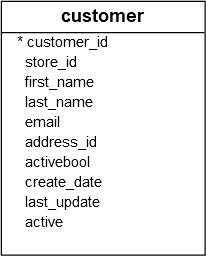PostgreSQL LENGTH() Function
Summary: in this tutorial, you will learn how to use the PostgreSQL LENGTH() functions to get the number of characters of a string.
Introduction to the PostgreSQL LENGTH() function
The PostgreSQL LENGTH() function returns the number of characters in a string.
Here’s the basic syntax for the LENGTH() function:
LENGTH(string);The LENGTH() function accepts a string as a parameter. It can be any of the following data types:
- character or char
- character varying or varchar
- text
The LENGTH() function returns an integer that represents the number of characters in the string. It returns NULL if the string is null.
PostgreSQL provides the CHAR_LENGTH() and CHARACTER_LENGTH() functions that provide the same functionality as the LENGTH() function.
PostgreSQL LENGTH() function examples
Let’s explore some examples of using the LENGTH() function.
1) Basic PostgreSQL LENGTH() function examples
The following example uses the LENGTH() function to get the length of a string:
SELECT
LENGTH ('PostgreSQL Tutorial');Output:
length
--------
19
(1 row)If you pass NULL to the LENGTH() function, it returns NULL.
SELECT
LENGTH (NULL);Output:
length
--------
null
(1 row)2) Using the PostgreSQL LENGTH() function with table data example
We’ll use the customer table from the sample database:
 The following example uses the
The following example uses the LENGTH() function to retrieve the first names and the number of characters of first names from the customer table:
SELECT
first_name,
LENGTH (first_name) len
FROM
customer
ORDER BY
len;Output:
first_name | len
-------------+-----
Jo | 2
Sam | 3
Roy | 3
Eva | 3
Don | 3
Dan | 3
...Summary
- Use the PostgreSQL
LENGTH()function to get the number of characters of a string.